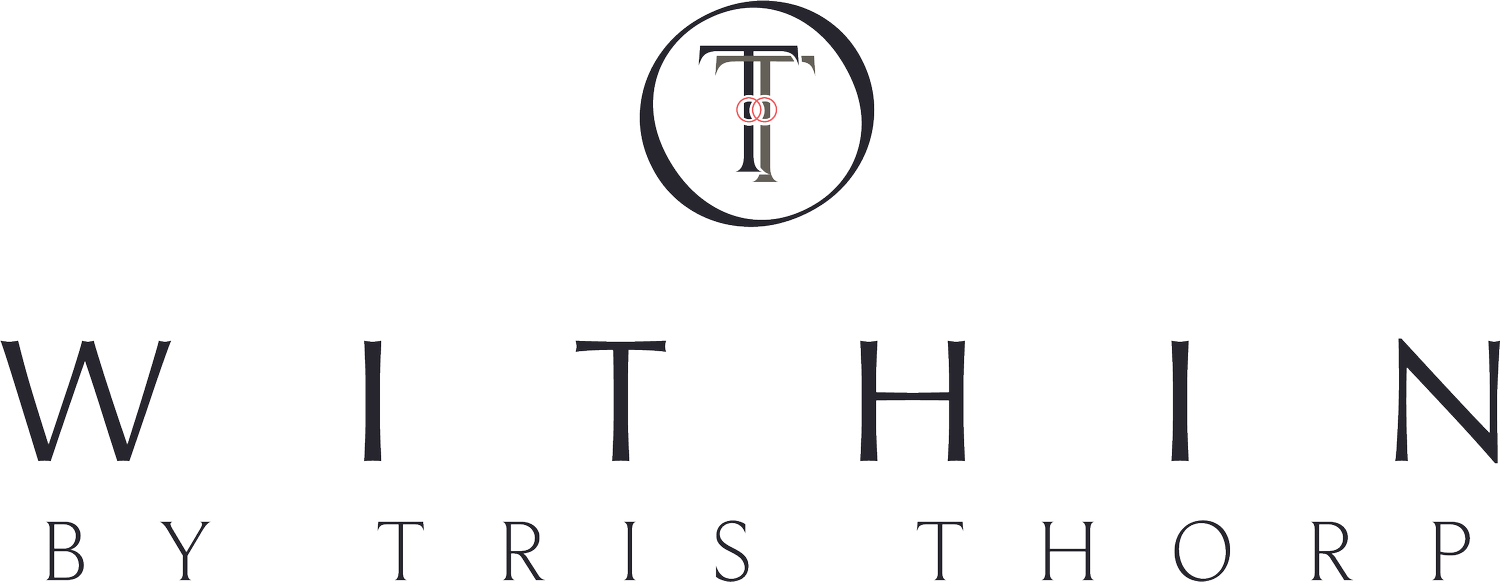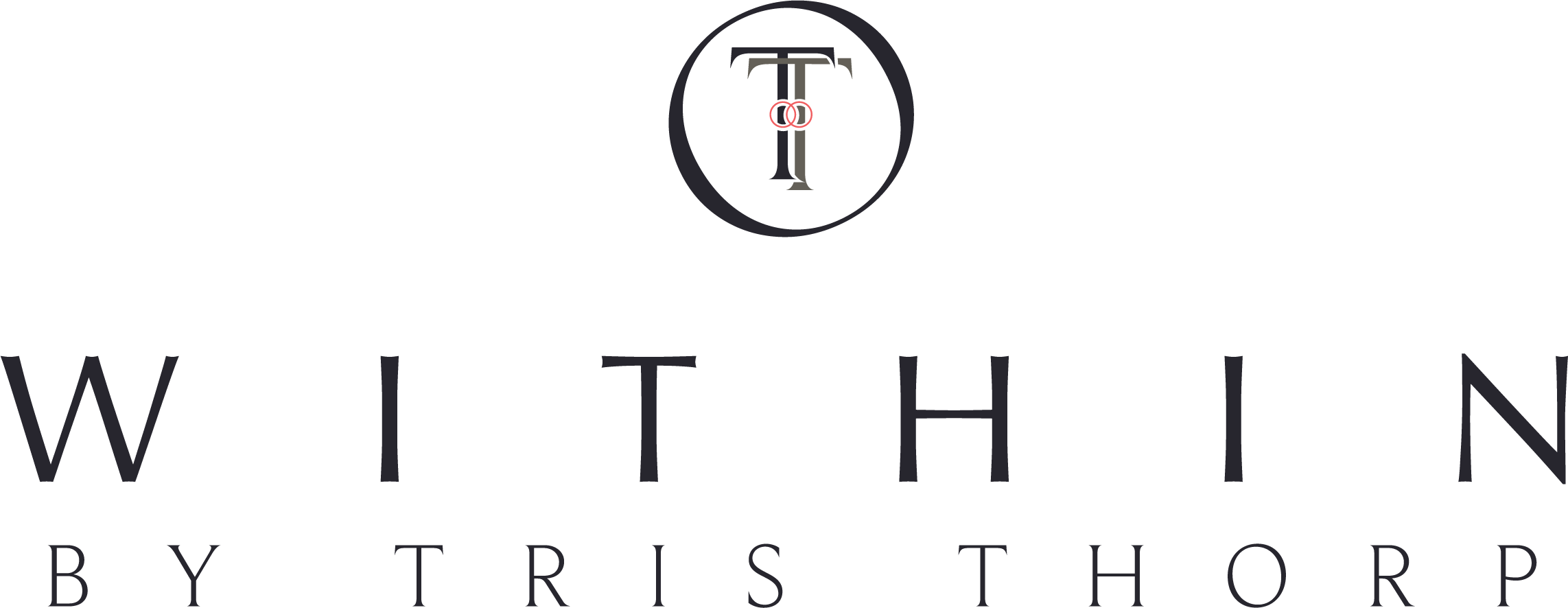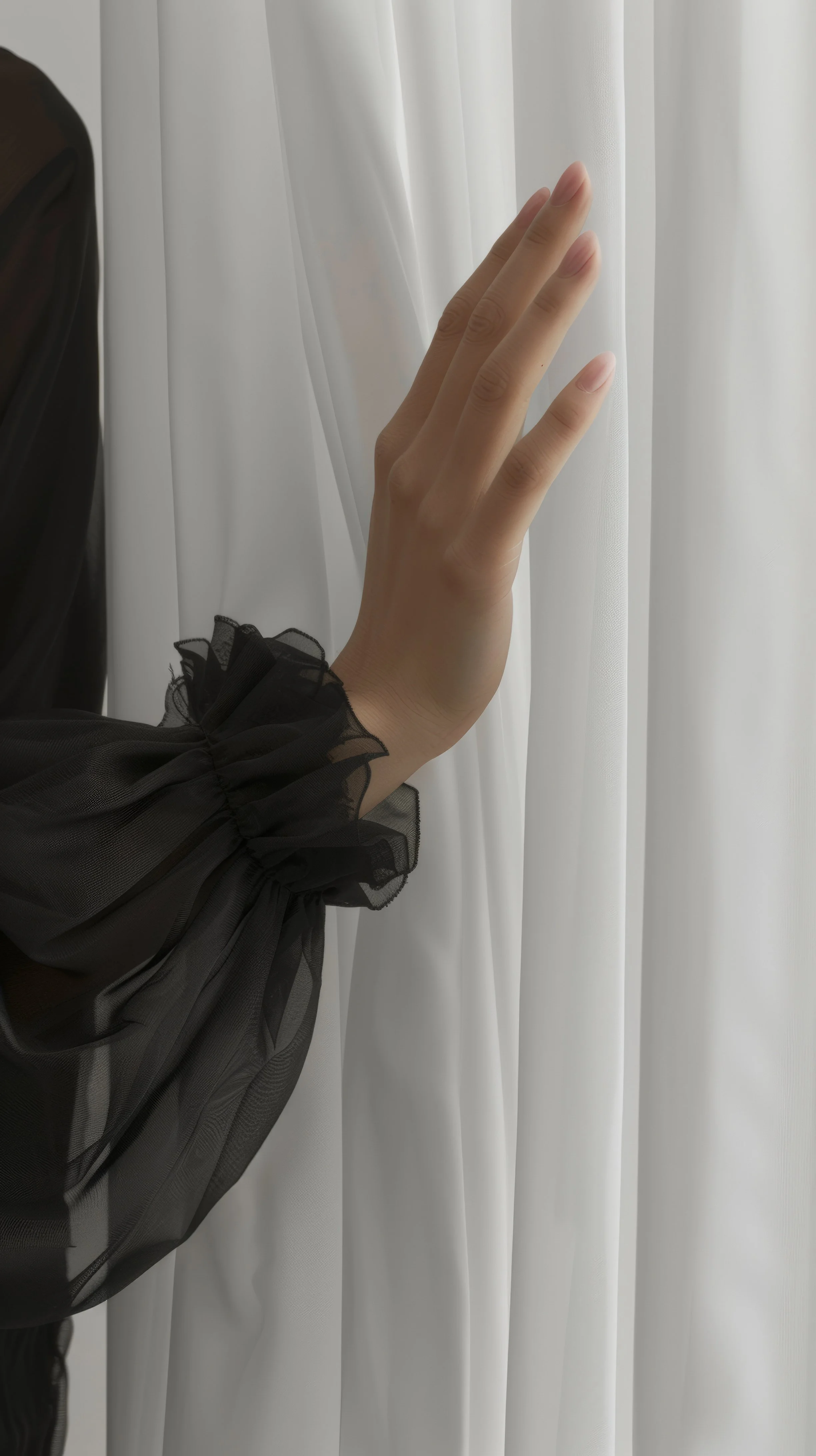THERE’S THE TALK, AND THEN THERE’S THE WALK. THIS IS WHERE YOUR JOURNEY BEGINS.
Tris Thorp
MASTER COACH 20+ YEARS | SERVING CLIENTS INTERNATIONALLY
WELCOME TO
EMOTIONAL MASTERY · SHADOW WORK · IDENTITY RECALIBRATION
WITHIN is Tris Thorp’s proven ecosystem of inner work for untangling the patterns, unconscious behaviors, and faltering identities that quietly shape your life from the inside out.
Where high-achieving, emotionally intelligent women break free from old patterns, empower their true identities, and live their legacy in real time.
Built on over two decades of experience, WITHIN by Tris Thorp integrates tools Tris developed while working alongside global leaders like Deepak Chopra in spirituality, Dr. David Simon in emotional healing, and Debbie Ford, the pioneer of modern shadow work.
What you’ll find WITHIN
Personalized 1-on-1 work with Tris to step fully into yourself, tackling the most challenging inner work head-on, with built-in accountability and deeply transformative support every step of the way.
Self-paced, but never alone, Tris’s guided programs and courses offer structure, tools, and community to support your growth alongside other ambitious, self-led women.
Away from the noise, demands, and distractions of everyday life. These immersive retreats offer a condensed, deeply focused sacred space for growth that would normally take months to unfold.
Meet Tris Thorp
ABOUT THE VISIONARY BEHIND “WITHIN“
I didn’t curate my way into a career in personal development. I was forged by life experience…childhood trauma, sexual abuse, addiction, betrayal, loss, and an identity-shattering divorce.
Now, I teach (and practice) the the work that has saved my life over and over again, and I’ve watched it transform the lives of thousands of others.
I was personally mentored by the world’s foremost experts in consciousness, emotional healing and shadow work, then, spent years traveling the world, teaching this work alongside them.
Today, I guide high-achieving, emotionally intelligent women who “have it all,” and yet, feel something is still missing. (And still make time for the things I love, like riding my horse, spontaneous travel, and flying airplanes!)

FROM WOMEN WHO DID THE WORK
Love Notes
“I came in expecting personal growth… I walked away with generational healing. It was more than healing, it was total freedom.”
— DEBBIE, Boulder, CO
“Before Tris, I was lost in trauma loops: lying, hiding, controlling. Now, I feel free, self-led, and aligned in every part of my life.”
— LAUREN, Southern California
“Tris offered me an immediate lifeline, a deep sense of connection, trust, and hope.”
— DIANE, San Diego, CA

THE ESSENCE OF ‘WITHIN’ BY TRIS THORP
I believe the parts of ourselves we subconsciously hide - our shadow - holds the keys to our wholeness.
My unique approach guides women through the thresholds of inner work: meeting the unhealed wounds, unconscious patterns, and fractured identities that quietly shape their lives. I steward my clients through each stage of transformation with precision and care, creating the safety to face what has long been avoided, while holding the vision of who they are becoming.
This is an unparalleled process of psychological, emotional, and energetic refinement, designed so that, on the other side, the result is a life lived with alignment, agency, and the unmistakable resonance of truth.
To the women who say they’re ready:
It’s time to act on it.
No more sugarcoating the truth.
No more bypassing disguised as “trusting the process.”
No more abandoning your standards.
You know exactly where you’re living out of alignment, and it’s costing you.
Your body feels it. Your relationships reflect it. Your results show it.
If you're honest? You’ve been busy managing your circumstances instead of confronting your truth.
It’s time to take full ownership.
Of your patterns. Your choices. Your energy.
Because holding it all together on the outside, while quietly unraveling on the inside, is no longer sustainable.

POUR A BEV, SLOW DOWN and TUNE IN. THERE’S SOMETHING HERE FOR YOU.
Sharing the dark and the light
…one truth at a time.
WISDOM YOU’LL ACTUALLY COME BACK TO AGAIN AND AGAIN











